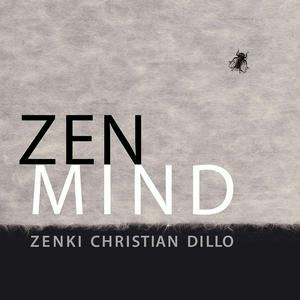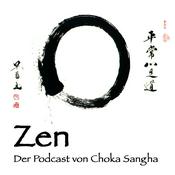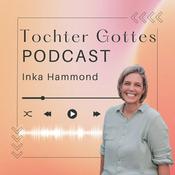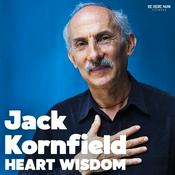147 Episoden
- This talk was given as an introduction to a multi-week study of Dogen’s essay Being-Time (Uji) during the Boulder Zen Center Everyday Bodhisattva Practice Period. It doesn’t go into the details of the text yet but sets the ground for engaging Dōgen (or any difficult dharma text) not as philosophy, but as practice. The question isn’t about the nature of time (what it is), but how we relate to time in ways that bind us or free us. Our ordinary assumptions about time operate invisibly, shaping anxiety, expectation, and disappointment. Through everyday examples—broken machines, shifting plans, bodily limits—we see how attachment to what should last creates suffering. Practice invites a different intimacy with impermanence, not as an idea but as lived experience. The key to this is a shift in how we attend to the present moment, which leads to shifts in our sense of time and our sense of self—thus opening the gate of transformation.
Welcome to Zen Mind!
Our annual Everyday Bodhisattva Practice Period is currently underway. This three-month period offers an opportunity for Sangha members to come together and deepen their practice through individually designed schedules, supported by Dharma teachings and peer-to-peer Sangha dialogue. Practice Periods are guided by Zenki Roshi together with members of the Practice Council, and the 2026 Practice Period emphasizes the study of Dōgen’s fascicle Being-Time (Uji). Learn more here: https://www.boulderzen.org/practice-period-2026
Following the Practice Period, a full commentary on Being-Time (Uji) will be offered later this summer as a self-paced course. To be notified when it launches, please join our mailing list.
Love the dharma talks and want to hear more? Consider becoming a Premium Podcast subscriber for only $9/month. Dive deeper into the topics through Q&A sessions related to each of the talks. You can even ask questions of your own through the 'Ask Me Anything' platform and gain access to previously unpublished talks from intensives. Learn more here: https://zenmind.supercast.com/
If you're enjoying these talks, please subscribe and leave us a rating or review!
See all events and join our mailing list at www.boulderzen.org. Email us at [email protected].
Zenki Christian Dillo Roshi is the the guiding teacher at the Boulder Zen Center in Colorado, USA. This podcast shares the regular dharma talks given at the center. Zenki Roshi approaches Zen practice as a craft of transformation, liberation, wisdom and compassionate action. His interest is to bring Buddhism alive within the Western cultural context, while staying committed to the traditional emphasis on embodiment. - This talk was given at the opening of the 7th 90-day Everyday Bodhisattva Practice Period at the Boulder Zen Center, as participants were clarifying guiding intentions for the months ahead. Zen practice—and life more broadly—organize themselves around what we commit to. Rather than emphasizing goals, intention is presented as direction: the way attention is shaped and sustained. From this view, positive change does not come from forcibly fixing or cutting away what is unwholesome. Practice is instead to nourish what is already wholesome, allowing what is unwholesome to wither from lack of attention. Nourishment becomes a guiding orientation: staying in the zone of nourishment, investigating what truly supports life, and trusting one’s own sense of it—while recognizing that personal nourishment and true wholesomeness is inseparable from the well-being of others and the living world.
Welcome to Zen Mind!
Love the dharma talks and want to hear more? Become a Premium Podcast subscriber for only $9/month. Dive deeper into the topics through Q&A sessions related to each of the talks. You can even ask questions of your own through the 'Ask Me Anything' platform and gain access to previously unpublished talks from intensives. Learn more here: https://zenmind.supercast.com/
Our annual Everyday Bodhisattva Practice Period is now underway! This three-month period offers an opportunity for Sangha members to come together and deepen their practice through individually designed schedules, supported by Dharma teachings and peer-to-peer Sangha dialogue. Practice Periods are guided by Zenki Roshi together with members of the Practice Council. The 2026 Practice Period emphasizes the study of Dōgen’s fascicle Being Time (Uji). Learn more here: https://www.boulderzen.org/practice-period-2026
See all events and join our mailing list at www.boulderzen.org. Email us at [email protected].
If you're enjoying these talks, please subscribe and leave us a rating or review!
Zenki Christian Dillo Roshi is the the guiding teacher at the Boulder Zen Center in Colorado, USA. This podcast shares the regular dharma talks given at the center. Zenki Roshi approaches Zen practice as a craft of transformation, liberation, wisdom and compassionate action. His interest is to bring Buddhism alive within the Western cultural context, while staying committed to the traditional emphasis on embodiment. - At the turn of the year, we often pause to reflect, set intentions, and imagine a better version of ourselves ahead. Yet often we experience a stubborn gap between those ideals and the lived texture of daily life. This talk questions whether that gap can be closed through effort and control, or whether something else is being asked of us. After reflecting on traditional Buddhist teachings on right intention and critiquing them from a Zen perspective as dualistic (a self trying to improve itself over time), attention turns toward the present moment itself. What if liberation is not postponed to the future, but available now? Through zazen and beginner’s mind—allowing experience to be exactly as it is—intention becomes less about fixing ourselves and more about a continued pulse of receiving the texture of this situation here now and trusting its unfolding.
Welcome to Zen Mind!
Love the dharma talks and want to hear more? Become a Premium Podcast subscriber for only $9/month. Dive deeper into the topics through Q&A sessions related to each of the talks. You can even ask questions of your own through the 'Ask Me Anything' platform and gain access to previously unpublished talks from intensives. Learn more here: https://zenmind.supercast.com/
Our annual 'Everyday Bodhisattva Practice Period' is now open for registration! The 3-month Practice Period is an opportunity to come together with other members and deepen your practice with an individually designed schedule supported by a variety of Dharma teachings and peer-to-peer Sangha dialogue. Practice Periods are led by Zenki Roshi, BZC’s Guiding Teacher, together with members of the Practice Council. The 2026 Practice Period will emphasize the study of Dogen's fascicle 'Being Time' (Uji). Learn more and register here: https://www.boulderzen.org/practice-period-2026
See all events and join our mailing list at www.boulderzen.org. Email us at [email protected].
If you're enjoying these talks, please subscribe and leave us a rating or review!
Zenki Christian Dillo Roshi is the the guiding teacher at the Boulder Zen Center in Colorado, USA. This podcast shares the regular dharma talks given at the center. Zenki Roshi approaches Zen practice as a craft of transformation, liberation, wisdom and compassionate action. His interest is to bring Buddhism alive within the Western cultural context, while staying committed to the traditional emphasis on embodiment. - This talk explores impermanence as an intimate fact of lived experience, in contrast to our desire for permanence and stability. Along with conditionality and no-self, impermanence is a core principle of Buddhist wisdom teachings. Yet these principles only matter when they are felt directly-in this breathing body, in sickness, aging, loss, and vulnerability. This is why we meditate: practice allows impermanence to be known not as an idea, but as an existential fact of our life. What we call "self" can then be understood as a defensive posture against fragility. The talk reframes Zen practice as two inseparable movements: zazen, receiving experience as it is, and action, responding to conditions as they arise. What can be relied on, even as everything changes, is this receptive awareness and responsive activity.
Welcome to Zen Mind!
Love the dharma talks and want to hear more? Become a Premium Podcast subscriber for only $9/month. Dive deeper into the topics through Q&A sessions related to each of the talks. You can even ask questions of your own through the 'Ask Me Anything' platform and gain access to previously unpublished talks from intensives. Learn more here: https://zenmind.supercast.com/
Our annual 'Everyday Bodhisattva Practice Period' is now open for registration! The 3-month Practice Period is an opportunity to come together with other members and deepen your practice with an individually designed schedule supported by a variety of Dharma teachings and peer-to-peer Sangha dialogue. Practice Periods are led by Zenki Roshi, BZC’s Guiding Teacher, together with members of the Practice Council. The 2026 Practice Period will emphasize the study of Dogen's fascicle 'Being Time' (Uji). Learn more and register here: https://www.boulderzen.org/practice-period-2026
See all events and join our mailing list at www.boulderzen.org. Email us at [email protected].
If you're enjoying these talks, please subscribe and leave us a rating or review!
Zenki Christian Dillo Roshi is the the guiding teacher at the Boulder Zen Center in Colorado, USA. This podcast shares the regular dharma talks given at the center. Zenki Roshi approaches Zen practice as a craft of transformation, liberation, wisdom and compassionate action. His interest is to bring Buddhism alive within the Western cultural context, while staying committed to the traditional emphasis on embodiment. - This talk was given on day 3 of a 7-day sesshin at the Boulder Zen Center. It continues an exploration of three modes of attention: focus, field, and full function. Attention is the most foundational way the world comes into being for us. This talk explores what this means for our sense of self and our sense of freedom. It uses a chapter called "Finding Yourself" from a recently published book with talks by Suzuki Roshi. You can find the reference in the show notes as well as ways for how to access the other talks in the sesshin series.
Welcome to Zen Mind!
Love the dharma talks and want to hear more? Become a Premium Podcast subscriber for only $9/month. Dive deeper into the topics through Q&A sessions related to each of the talks. You can even ask questions of your own through the 'Ask Me Anything' platform and gain access to previously unpublished talks from intensives, such as the December Sesshin. Learn more here: https://zenmind.supercast.com/
We recently started our annual year-end fundraising effort! Please consider making a one-time contribution or starting or upgrading your membership to make this next phase of BZC possible: https://www.boulderzen.org/fundraiser
See all events, programs, and how to become a member at www.boulderzen.org. Reach out and email us at [email protected].
If you're enjoying these talks, please subscribe and leave us a rating or review!
Zenki Christian Dillo Roshi is the the guiding teacher at the Boulder Zen Center in Colorado, USA. This podcast shares the regular dharma talks given at the center. Zenki Roshi approaches Zen practice as a craft of transformation, liberation, wisdom and compassionate action. His interest is to bring Buddhism alive within the Western cultural context, while staying committed to the traditional emphasis on embodiment.
Weitere Religion und Spiritualität Podcasts
Trending Religion und Spiritualität Podcasts
Über Zen Mind
Zenki Christian Dillo Roshi is the Guiding Teacher at the Boulder Zen Center in Colorado, USA. This podcast shares the regular dharma talks given at the Center. Zenki Roshi approaches Zen practice as a craft of transformation, liberation, wisdom, and compassionate action. His interest is to bring Buddhism alive within Western cultural horizons while staying committed to the traditional emphasis on embodied practice.
Podcast-WebsiteHöre Zen Mind, Johannes Hartl über die Philosophie des wahren Lebens und viele andere Podcasts aus aller Welt mit der radio.de-App

Hol dir die kostenlose radio.de App
- Sender und Podcasts favorisieren
- Streamen via Wifi oder Bluetooth
- Unterstützt Carplay & Android Auto
- viele weitere App Funktionen
Hol dir die kostenlose radio.de App
- Sender und Podcasts favorisieren
- Streamen via Wifi oder Bluetooth
- Unterstützt Carplay & Android Auto
- viele weitere App Funktionen


Zen Mind
Code scannen,
App laden,
loshören.
App laden,
loshören.








































